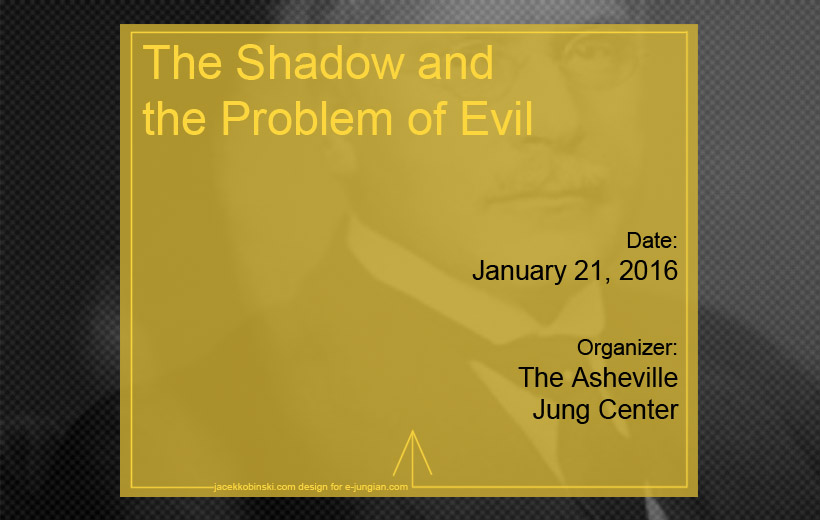
Presented by
The Asheville Jung Center
The problem of evil infects the individual psyche and the social order. Indeed, it is a fire sweeping across world culture and political arrangements. The reality of evil is indisputable, but there are questions about it: What is it? Where do we locate it? What can we do about it?
“The sight of evil kindles evil in the soul…. The victim is not the only sufferer; everybody in the vicinity of the crime, including the murderer, suffers with him. Something of the abysmal darkness of the world has broken in on us, poisoning the very air we breathe and befouling the water with the stale, nauseating taste of blood.”
-Jung, 1945. After the catastophe. Coll. Works. 10. p. 199
On the collective level, nations take action against perceived evil by building elaborate defense and prison systems. Enormous efforts are made to prevent evil from encroaching on a country’s territory and civil society. When evil breaks, out countries go to war, criminals are jailed, and defensive systems are aroused to their full magnitude. Similarly, when an individual is threatened by evil, psychological defenses are mobilized and actions taken. On an intrapsychic level, this is observed in dreams and fantasies. Evil is perceived as “out there” and must be defended against with laws and by force. But what of the evil within, the evil we do without conscious awareness, the evil we do to ourselves? And, can the perpetrator, inner or outer, be rehabilitated? Is there a therapy for evil?
In this seminar, we will discuss the problem of evil as both relative (a matter of perspective and judgment) and as absolute (beyond dispute, archetypal). What is the difference? This issue comes up in individuals and in society as they make decisions on peace or war.































